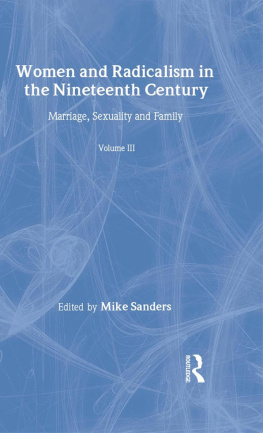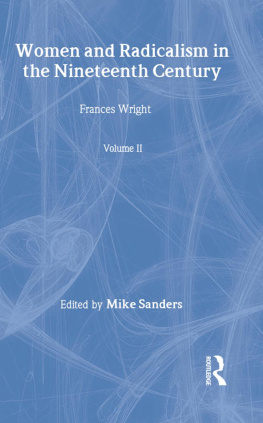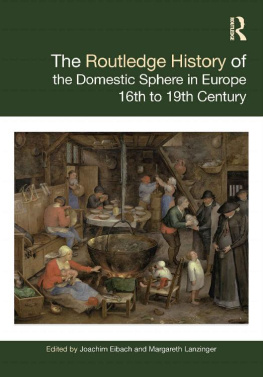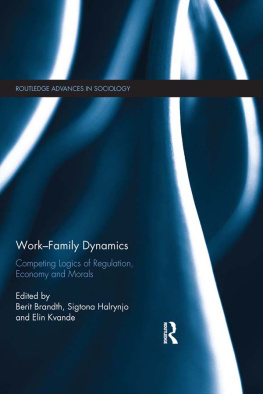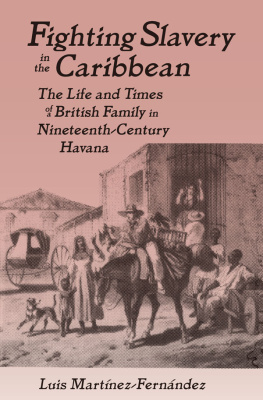First published 2013 by Pickering & Chatto (Publishers) Limited
Published 2016 by Routledge
2 Park Square, Milton Park, Abingdon, Oxon OX14 4RN
605 Third Avenue, New York, NY 10017
Routledge is an imprint of the Taylor & Francis Group, an informa business
Copyright Taylor & Francis 2013
Copyright Editorial material Julie-Marie Strange 2013
To the best of the Publishers knowledge every effort has been made to contact relevant copyright holders and to clear any relevant copyright issues. Any omissions that come to their attention will be remedied in future editions.
All rights reserved, including those of translation into foreign languages. No part of this book may be reprinted or reproduced or utilised in any form or by any electronic, mechanical, or other means, now known or hereafter invented, including photocopying and recording, or in any information storage or retrieval system, without permission in writing from the pub lishers.
Notice:
Product or corporate names may be trademarks or registered trademarks, and are used only for identification and explanation without intent to infringe.
The history of suicide in England, 17801914.
BRITISH LIBRARY CATALOGUING IN PUBLICATION DATA
1. Families Great Britain History 19th century Sources. 2. Parenthood Great Britain History 19th century Sources. 3. Parent and child Great Britain History 19th century Sources. 4. Children Great Britain Social conditions 19th century Sources. 5. Families in literature. 6. Parenthood in literature.
I. Nelson, Claudia. II. Strange, Julie-Marie, 1973.
III. Egenolf, Susan B.
362. 8509034-dc23
ISBN-13: 978-1-84893-102-2 (set)
Typeset by Pickering & Chatto (Publishers) Limited
DOI: 10.4324/9781003112686
ACKNOWLEDGEMENTS
Some contents of this volume exist in manuscript form; permission for their appearance here is much appreciated. The Family Man is transcribed from the manuscript magazine the Barnacle and reproduced by kind permission of the Fellows and Principal of Lady Margaret Hall, Oxford. The Nicholas Heald letters are reproduced by courtesy of the University Librarian and Director, The John Rylands Library, the University of Manchester. The Walker Fund material is reprinted with kind permission of Liverpool Record Office, Liverpool Libraries. Thank you to co-editors, Claudia Nelson and Susan Egenolf, for being superb to work with, generous with time and ideas, and supremely supportive. The generous advice of Harry Cocks, Sarah Toulalan, Hannah Barker, George Dent and Richard Clark is much appreciated. For assistance with transcription of manuscripts, grateful thanks to Catherine Feely and Jordan Fontenot. Any errors or omissions are, of course, my own.
INTRODUCTION
In 1994, the historian John Tosh published an essay that asked, What should historians do with masculinity? Men were everywhere in the nineteenth century because they were the norm against which women and children were defined. And yet, the sheer normative status of men led to what Tosh called a profound dualism; masculinity was everywhere but nowhere. Masculinity was constituted through a web of cultural attributes, status and power, but the meanings attached to husband and, especially, father identities had barely been addressed.1
The power of men as husbands and fathers in the long nineteenth century is indisputable. From the late eighteenth century, masculine power in family and household was inscribed by economic and legal structures, and underwritten by appeal to Divine law that identified God the father as head of a Christian family and temporal fathers as his deputies. Yet, as Trev Broughton and Helen Rogers observed in 2007, the economic, legal and spiritual authority of men over families was increasingly challenged during the Victorian and Edwardian period and, in any case, did not reflect the micropolitics of everyday life.2 This volume introduces a range of materials that demonstrate the relationship between the ideals of masculinity alongside the legal and economic authority invested in male heads of household and the micropolitics of everyday life.
In nineteenth-century ideological texts, womanhood was often synonymous with motherhood. Masculine identities retained a degree of independence from roles as husbands and fathers, but most young bachelors were advised on the selection of a wife while becoming a husband usually conferred an expectation of fatherhood. Likewise, the rights of fathers were contingent on the legal status of marriage, and male desertion of a woman and child could result in prosecution if sufficient evidence were available. Historical studies of family life have closely aligned husbands with fathers. In particular, analyses of family relations from the perspectives of womens and gender history emphasized the experiences of women and children living under the law of patriarchal authority. At marriage, under the law of coverture, wives became one with their husbands, but it was an unequal union because fathers held supreme authority over the unit. As Ben Griffin has demonstrated in his study


